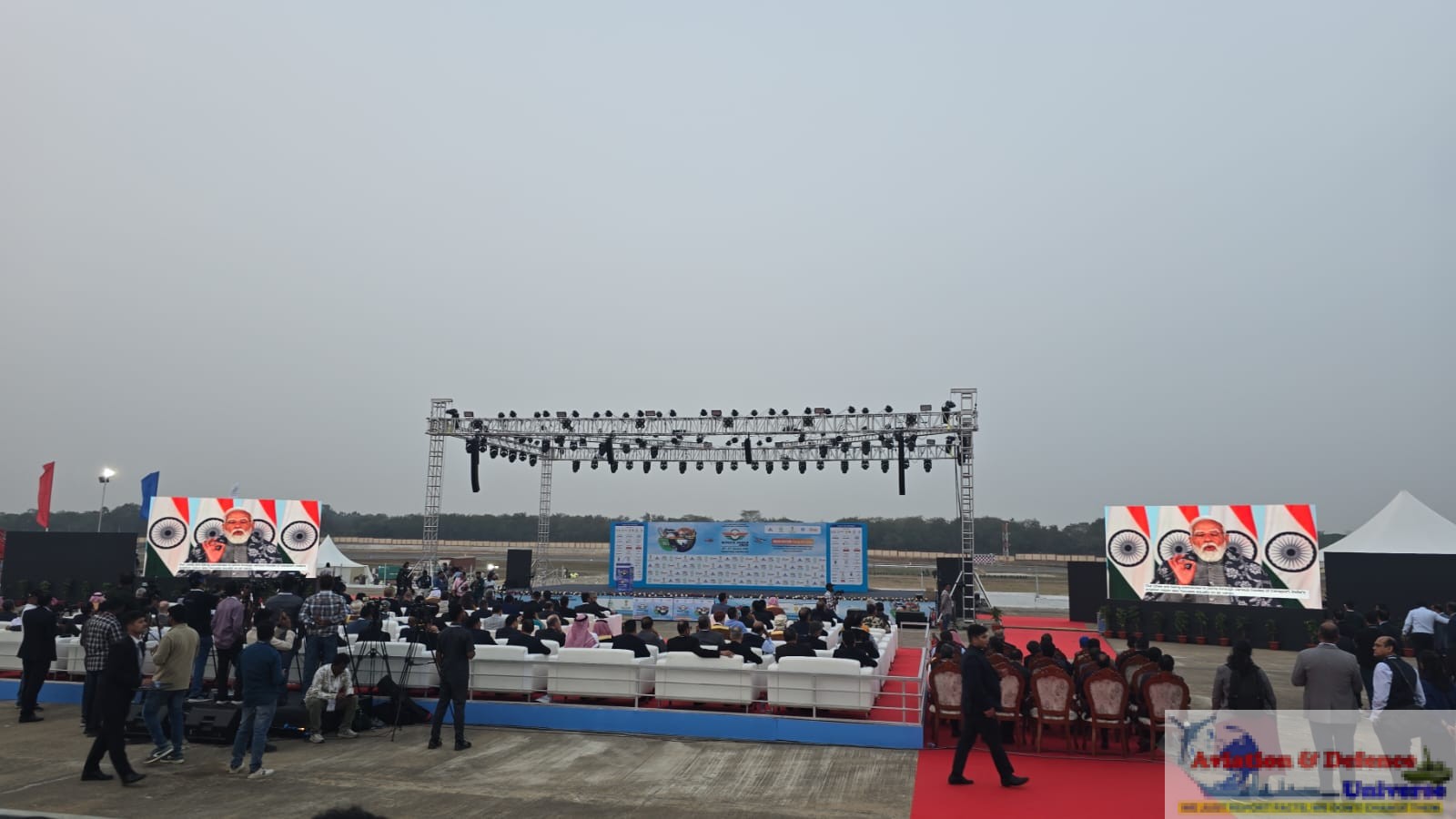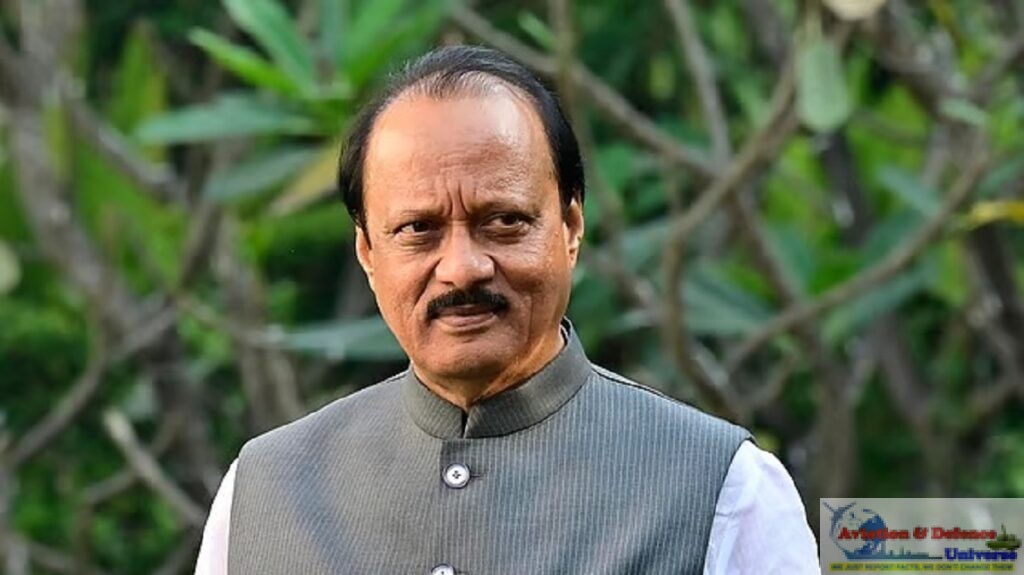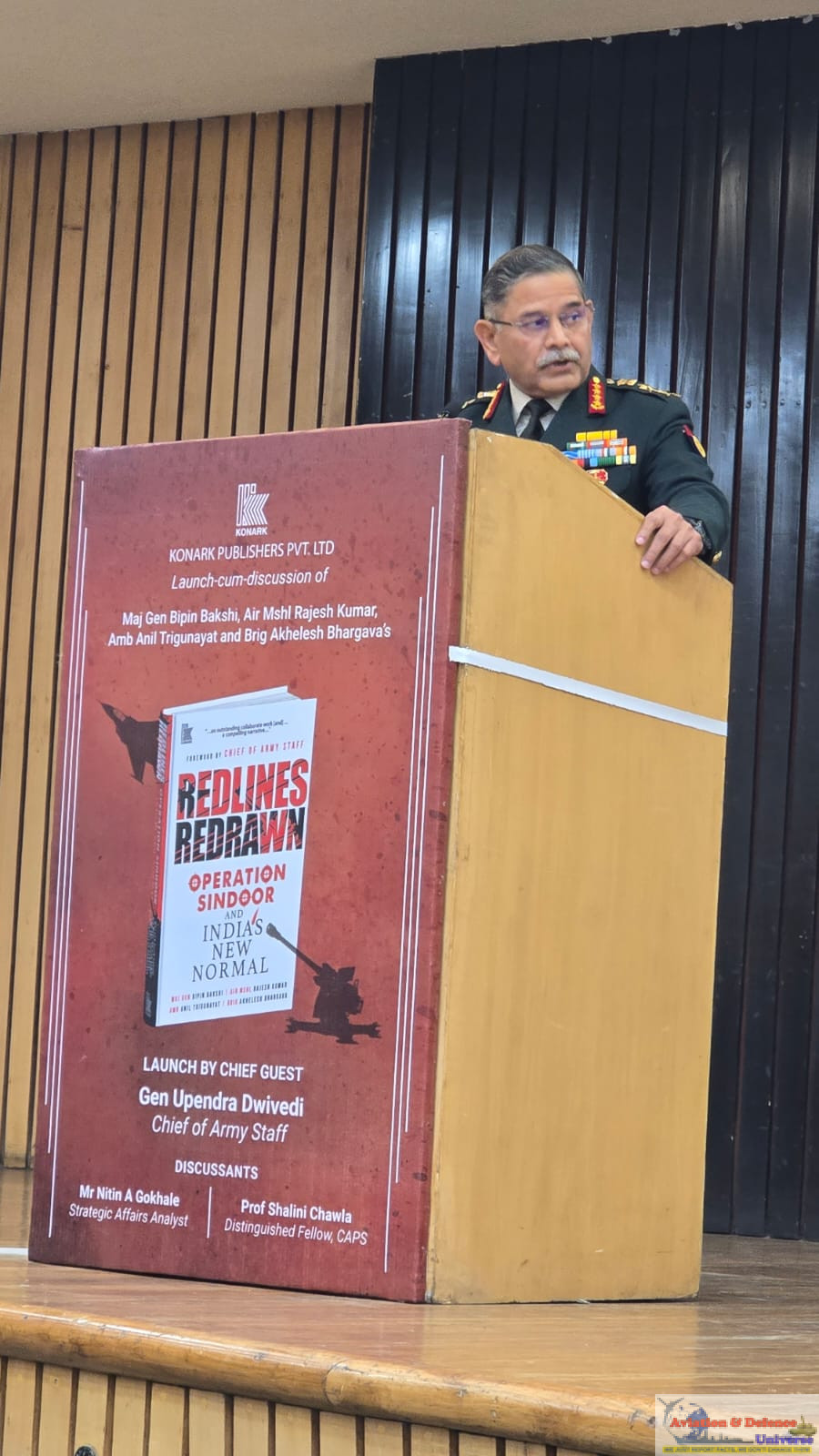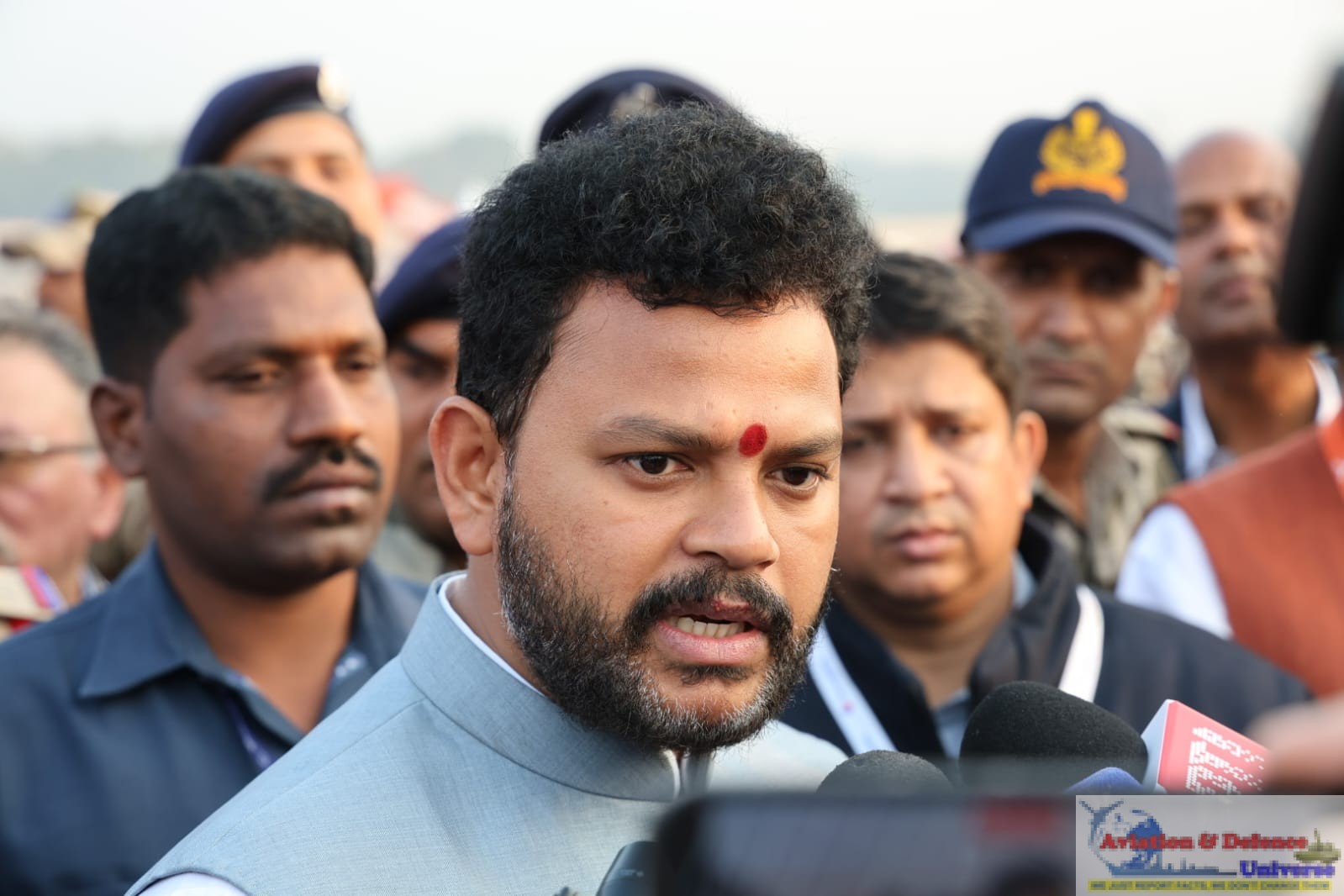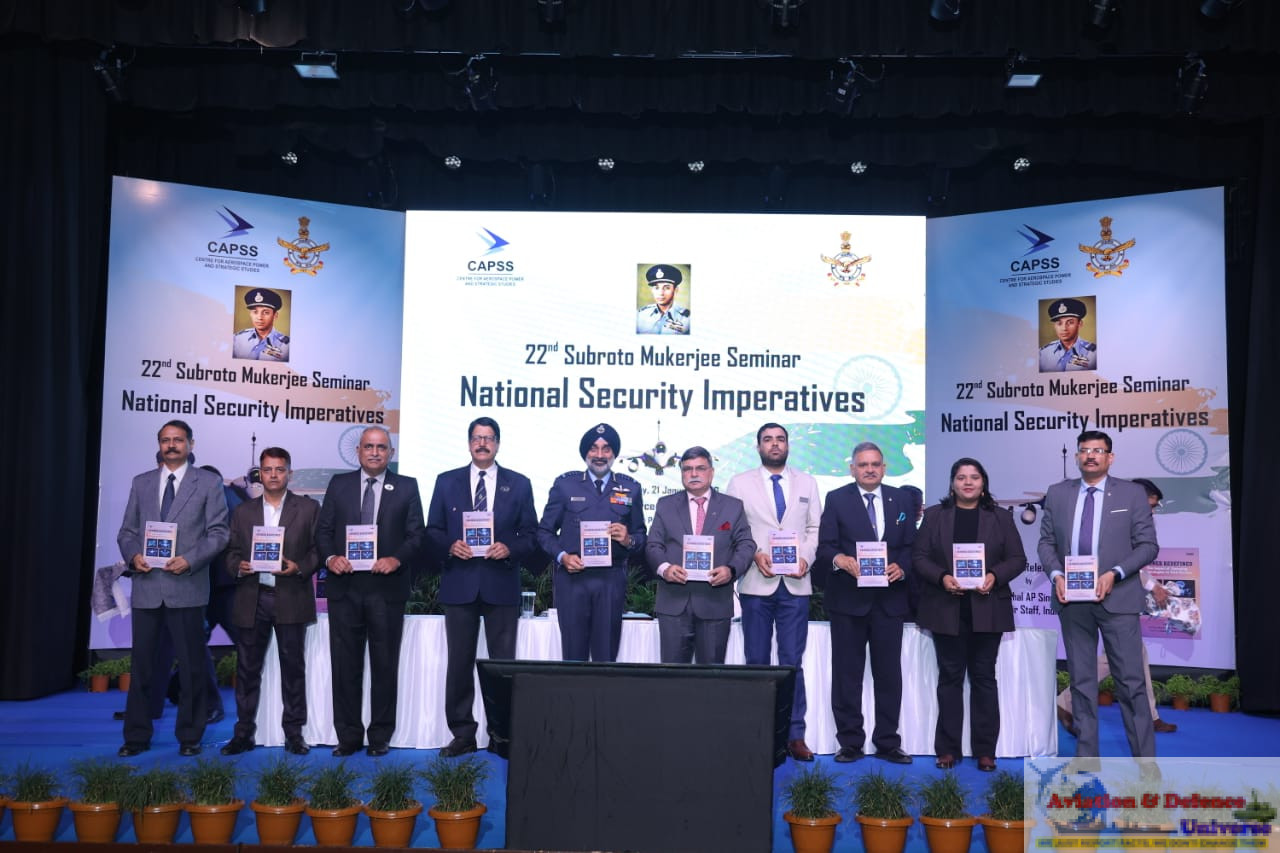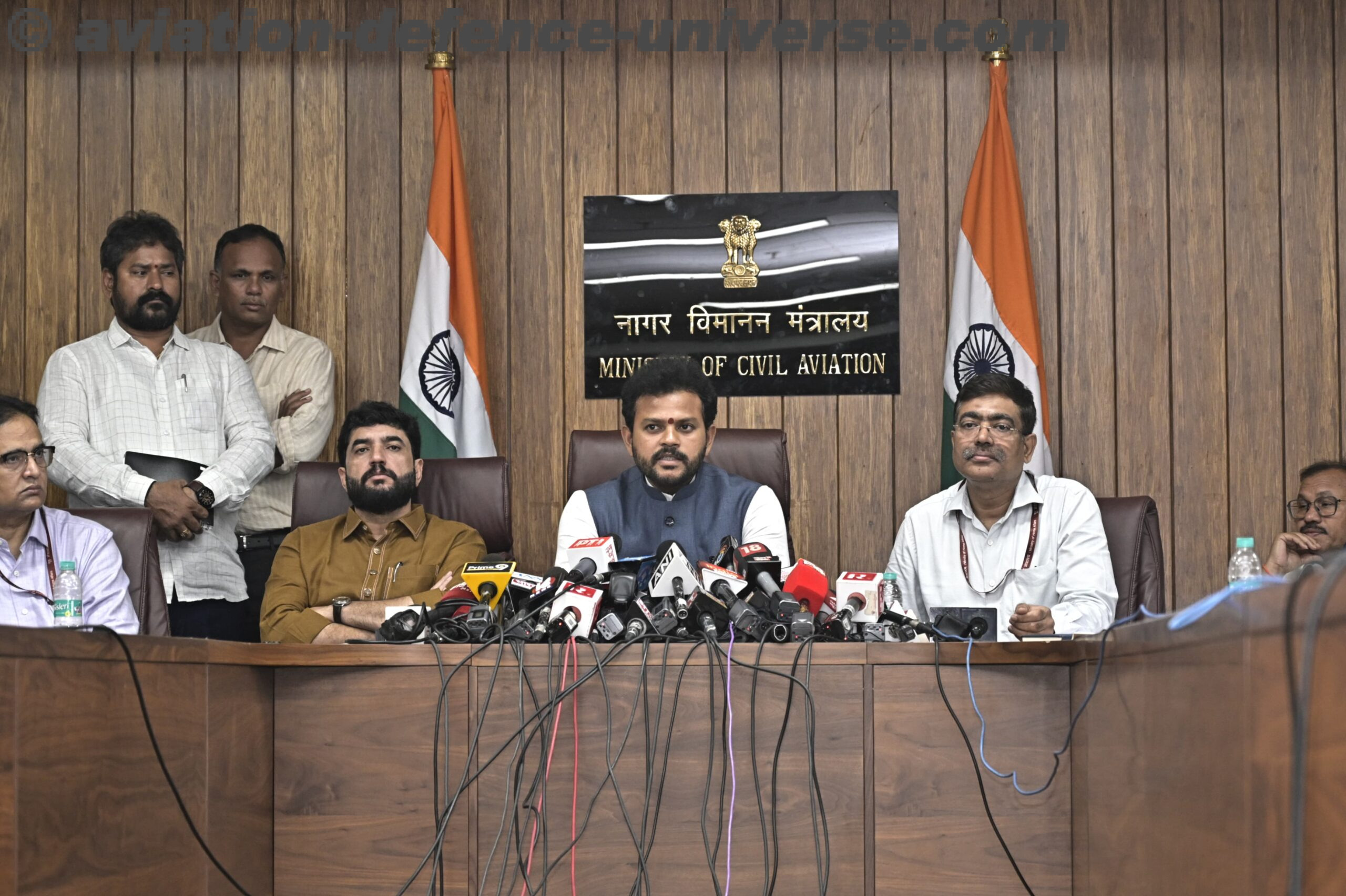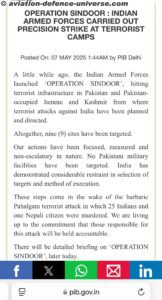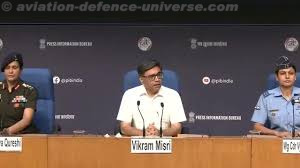 MEA-MoD’s joint briefing on today’s precision strikes by India on Pakistan based terror outfits
MEA-MoD’s joint briefing on today’s precision strikes by India on Pakistan based terror outfits -
India Responds to Pakistan-Backed Barbarity in Pahalgam
By Sangeeta Saxena
Athens/New Delhi. 07 May 2025. In a decisive response to the barbaric April 22 Pahalgam terrorist attack, which claimed 26 lives including one Nepali national, India launched a precision military operation targeting nine terrorist camps across Pakistan and Pakistan-occupied Jammu & Kashmir (PoJK). The operation, code-named Operation Sindoor, was executed at 1:44 AM on May 6 by the Indian Armed Forces with measured, non-escalatory and proportionate strikes. In a joint MEA-MoD briefing Foreign secretary Vikram Misri informed the media of the operation and India’s retaliation to the mayhem on innocent tourists at Pahalgam.
During the briefing, details emerged of the terrorist training pipeline in Pakistan and PoJK, covering recruitment, indoctrination, weapons training, jungle warfare, and infiltration operations. Terror attacks in Sonmarg (Oct 2024), Gulmarg (Oct 2024), Poonch (2023, 2024), and the recent Pahalgam massacre were all traced back to these camps.
On the morning of April 22, 2025, the serene landscape of Pahalgam in Jammu and Kashmir was shattered by an act of calculated savagery. In what has now been confirmed as the deadliest terrorist attack on civilians in India since the 26/11 Mumbai attacks, 26 lives were brutally taken — including one Nepali national — as Pakistani-trained terrorists of the Lashkar-e-Taiba (LeT) unleashed indiscriminate violence on a group of Indian tourists.
Speaking to the media in New Delhi, Foreign Secretary Vikram Misri minced no words, “This was a cold-blooded, Pakistan-sponsored massacre carried out by the Lashkar-e-Taiba, operating under the guise of a so-called Resistance Front. The victims were targeted with headshots at close range — many in front of their own families. This was not just murder. It was psychological warfare.”
The Pahalgam attack was designed not merely to kill but to traumatize. Survivors recounted how family members were forced to watch the executions, with the attackers reportedly instructing them to “take the message back.” That message, according to Misri, was intended to derail the return to peace and normalcy in Jammu and Kashmir — a region that witnessed a record-breaking 23 million tourist arrivals in 2024. “The objective was clear — to strike at the heart of economic growth, destabilize social harmony, and create fertile ground for more cross-border terrorism,” Misri said. “It was an attack on development, on coexistence, on the very idea of a peaceful Kashmir.”
A little-known outfit called The Resistance Front (TRF) claimed responsibility. But Indian authorities assert that TRF is merely a front for Lashkar-e-Taiba — a fact previously documented by India in half-yearly reports to the UN 1267 Sanctions Committee in both May and November 2024. “We warned the international community that TRF was being used by Pakistan-based groups like Lashkar and Jaish-e-Mohammed to camouflage their operations. Unfortunately, those warnings were not heeded in time,” Misri stated, referencing how Pakistan pushed to delete references to TRF in the UN Security Council’s press statement on April 25.
According to sources, intercepted communications and digital evidence have directly linked the Pahalgam attackers with handlers in Pakistan. Eyewitness accounts have helped identify the perpetrators, while known social media handles of LeT amplified the TRF’s claims post-attack. “Our agencies have a clear picture of who planned this attack, who backed them, and where they are,” Misri added.
India’s top diplomat underscored that this was not an isolated incident. “The features of this attack fit a long-established pattern of Pakistan’s use of terrorism as a state policy against India. It has hosted, financed, and protected terrorists who are internationally proscribed, while continuously misleading global forums like the Financial Action Task Force (FATF).” He cited the case of Sajid Mir, a 26/11 handler declared “dead” by Pakistan for years, only to be later revealed alive and subsequently arrested under pressure from the international community.
Following the Pahalgam attack, India immediately implemented diplomatic and security measures. But with fresh intelligence indicating imminent cross-border strikes, the Government of India authorized a limited, focused counter-terror operation. “This morning, India exercised its right to respond — to pre-empt and to deter,” Misri confirmed. “The strikes were measured, non-escalatory, proportionate, and responsible. Our target was not the Pakistani state or military — but the terrorist infrastructure and personnel being readied to cross into India.”
Standing beside Misri at the briefing were Colonel Sophia Qureshi and Wing Commander Vyomika Singh, who provided operational details of the precision strikes, confirming that nine terror sites were neutralized, including communications hubs and arms depots.
India’s response, said Misri, was in line with this global expectation. “There can be no immunity for terrorism — certainly not when it is being orchestrated across borders with impunity. India does not seek escalation. We seek justice. We will act with strength, with clarity, and with dignity. But we will not tolerate terror — not from across our borders, and certainly not when it targets our civilians, ” he said.
As Operation Sindhu reasserts India’s red lines on national security, what remains to be seen is whether the world will finally recognize and act against the Pakistan terror ecosystem that continues to threaten South Asian stability — from the shadows of PoJK to the streets of Pahalgam.
The Ministry of Defence confirmed that the mission targeted key Lashkar-e-Taiba and Jaish-e-Mohammed terror hubs responsible for the increasing spate of attacks in Jammu & Kashmir. The list of destroyed camps includes Sawai Nala Camp and Syedna Bilal Camp in Muzaffarabad, Gulpur Camp and Abbas Camp in Kotli, Barnala Camp in Bhimber, Sarjan Camp and Mehmoona Jial Camp in Sialkot, Markaz Taiba in Muridke, and Markaz Subhanallah in Bahawalpur. Notably, no Pakistani military facilities were targeted, and the Indian forces took great care to avoid civilian casualties.
Colonel Sophia Qureshi and Wing Commander Vyomika Singh, who briefed the media, emphasized that “the operation was conducted using precision-guided munitions based on credible international intelligence inputs.” The objective was to dismantle the infrastructure of terror without harming civilians. “Our actions were responsible and focused. This was about accountability and deterrence,” they added.
The Pahalgam attack had sent shockwaves across the country, with the terrorists deliberately murdering 26 civilians — most with close-range headshots — to terrorize families and disrupt the peace in the Kashmir valley. The attackers claimed affiliation with the Resistance Front (TRF), a known front for Lashkar-e-Taiba. India had previously shared intelligence with the United Nations’ 1267 Sanctions Committee about TRF’s links to Pakistan-based terror outfits. Pakistan’s subsequent attempt to remove references to TRF from the April 25 UN Security Council statement further highlighted its role in shielding terrorist proxies.
India’s diplomatic and intelligence circles have reiterated that the attack sought to derail Jammu & Kashmir’s economic recovery and normalcy, particularly targeting the booming tourism sector, which recorded 23 million visitors last year. The attack was also designed to provoke communal tensions. However, the Indian government and people maintained their composure, refusing to fall prey to the provocation.
Prime Minister Narendra Modi, following the Pahalgam attack, vowed to pursue the perpetrators “to the ends of the earth.” Operation Sindoor is being seen as the fulfilment of that promise. “Our actions are a signal to those who sponsor, support, and shelter terrorism that they will not go unpunished,” the Defence Ministry stated.
“These camps stretch from Sarainala in the north to Bhagarpur in the south, forming a chain of terror spanning across the border,” said Wing Commander Singh. “We exercised diligence to avoid civilian infrastructure and ensured precision targeting. No military base was hit, and there are no reports of civilian casualties.”
For over three decades, Pakistan has systematically nurtured a deeply entrenched terror ecosystem that operates both within Pakistan-occupied Jammu and Kashmir (PoJK) and across the Line of Control (LoC) into Indian territory. This ecosystem is enabled, funded, and protected by the Pakistani Army and its intelligence agency, the Inter-Services Intelligence (ISI). The objective: to wage a low-cost, deniable war against India and destabilize the region through cross-border terrorism.
For over three decades, Pakistan has systematically nurtured a deeply entrenched terror ecosystem that operates both within Pakistan-occupied Jammu and Kashmir (PoJK) and across the Line of Control (LoC) into Indian territory. This ecosystem is enabled, funded, and protected by the Pakistani Army and its intelligence agency, the Inter-Services Intelligence (ISI). The objective: to wage a low-cost, deniable war against India and destabilize the region through cross-border terrorism.
India’s response also finds strong backing from the international community, especially in light of the April 25 UN Security Council statement calling for accountability. With Operation Sindoor, India has demonstrated not only its capability but also its commitment to counter-terrorism while upholding international norms.
In a calibrated and precision-driven military operation named Operation Sindoor, the Indian Armed Forces struck at the heart of terror infrastructure operating from across the border in a decisive response to the April 22 Pahalgam massacre. The Ministry of Defence confirmed that no Pakistani military installations were targeted, underlining India’s intent to avoid escalation. Through the use of precision-guided munitions and niche capabilities, collateral damage was meticulously avoided. The strikes reinforced India’s unwavering commitment to ensuring that those orchestrating attacks on Indian soil face direct and exacting consequences, while simultaneously exposing the hollow denials and propaganda issued by Pakistan’s DGISPR.
As India remains on alert, security drills continue across the nation. The message is clear: terror will not go unanswered.












